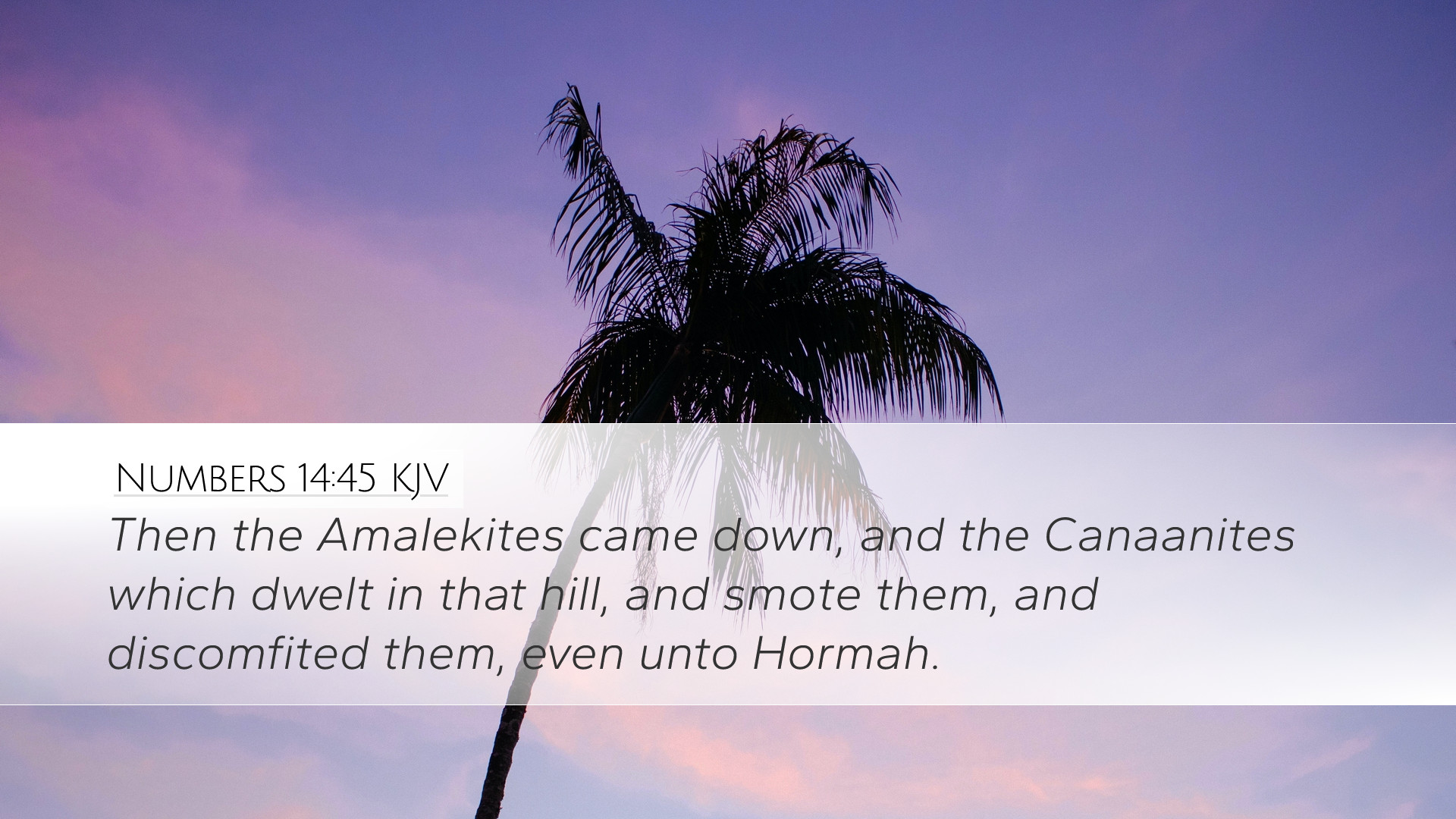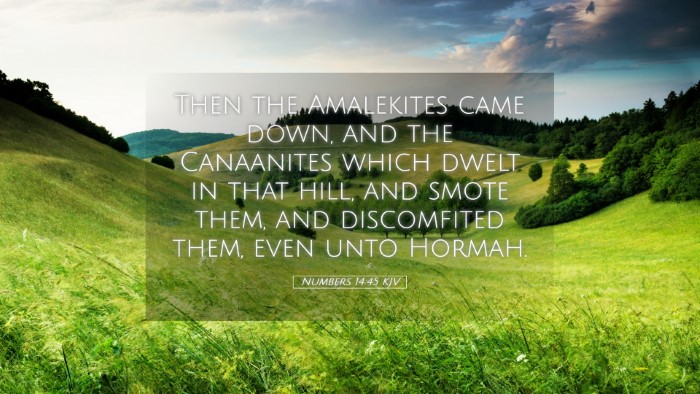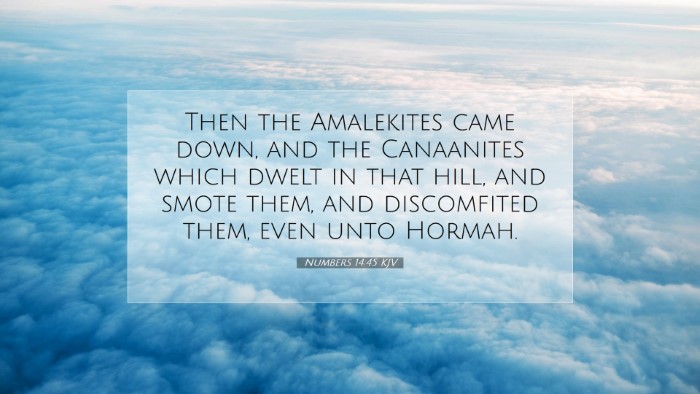Numbers 14:45 - A Commentary Synthesis
Verse: "But the Amalekites and the Canaanites who dwelt in that mountain, came down, and smote them, and discomfited them, even unto Hormah."
Context and Background
This verse occurs in the context of Israel’s journey in the wilderness, following their failure to enter Canaan due to their lack of faith. The story surrounding this verse has profound implications for understanding the consequences of disobedience and the nature of God's judgment. Early in the chapter, the people of Israel respond to the negative report from the spies by rejecting God’s promised plan. God’s declaration of judgment leads to despair among the people, and they attempt to act on their own, resulting in their defeat.
Commentary Insights
Matthew Henry's Commentary
Matthew Henry highlights the consequence of Israel’s rebellion. He notes that despite the Israelites' initial faith and their efforts to secure the Promised Land after hearing of their sentence, they were met with disaster. They failed to discern that God’s judgment had already been pronounced, and thus they acted foolishly against God's will.
- Obedience First: Henry emphasizes that the people acted out of a misguided sense of duty and piety. Their attempt to ascend into the mountain to take the land is a metaphorical representation of what happens when one attempts to fulfill God’s promises through human strength, rather than through faith.
- The Nature of Their Enemies: He points out that the Amalekites and Canaanites represented the very obstacles that were promised to be overthrown by God. Their defeat came not only as a direct result of disobedience but was also a fulfillment of God's earlier warnings.
Albert Barnes' Notes on the Bible
Albert Barnes carefully analyzes the strategic failures of Israel in this narrative. He notes that their actions were strengthened by overconfidence and a lack of proper spiritual discernment leading to their downfall. The verse illustrates the severe reality that the Israelites faced when they chose to rebel against God’s ordained path.
- Rejection of God’s Authority: Barnes stresses the notion that the attempts of Israel to overcome their enemies without God's direction led to a severe consequence - the defeat at Hormah. This teaches a profound lesson about the importance of seeking God's direction in all endeavors.
- The Symbolism of Hormah: The name Hormah translates to "destruction" or "herem," which signifies a curse or a ban. This detail encapsulates the idea that their self-willed endeavor not only failed but was set upon a trajectory of destruction that was already proclaimed.
Adam Clarke’s Commentary
Adam Clarke presents a historical and exegetical view of the text. He provides insights into the geography of the land and the significance of the Amalekite and Canaanite presence in their encounter. Clarke remarks on the tragic sequence of events and what the struggle represents for both the Israelites and future generations.
- Physical and Spiritual Battle: Clarke suggests that the physical battles faced reflect deeper spiritual battles against rebellion and faithlessness. The defeat signifies more than merely military failure; it signifies a loss of divine favor and protection.
- Lessons of Faith: He points out that the response of the Israelites serves as a cautionary tale, underscoring the importance of faith and obedience in the life of a believer. When a community or individual acts apart from divine guidance, they put themselves at risk of spiritual and physical peril.
Theological Implications
From these commentaries, the theological ramifications of Numbers 14:45 are multifaceted. The failure of the Israelites is a stark reminder of the necessity of reliance on God rather than on human strength or wisdom. Each commentator contributes to a deeper understanding of how disobedience can result not only in personal failure but also in community-wide repercussions.
- Faithfulness vs. Unbelief: The juxtaposition of faithfulness to God’s commands against the backdrop of unbelief stands as a major theme that resonates through the history of Israel and extends into Christian theology.
- Consequences of Choices: The defeat at Hormah illustrates the broader Christian principle that choices have consequences, and acting outside God’s will can lead to downfall.
- Divine Judgment: The swift reaction of the Amalekites and Canaanites conveys the reality of divine judgment. God’s words in the wilderness resonate throughout history, reminding believers of the commitment to faithfulness required in following God.
Conclusion
Numbers 14:45 encapsulates critical themes of rebellion, the importance of faith, and the consequences of straying from God’s path. The insights from public domain commentators shed light on the significance of understanding both the historical context and the timeless lessons applicable to believers today. It is a profound reflection on the need for adherence to God's guidance in both spiritual and practical endeavors, encouraging deeper study, prayer, and reflection for all who seek to understand God's Word more fully.


